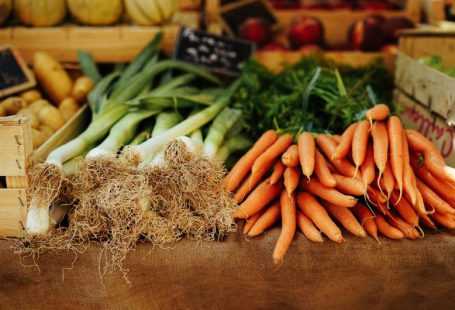Livestock plays a crucial role in the agribusiness sector, contributing significantly to the global economy and food supply chain. Understanding the role of livestock in agribusiness is essential for farmers, policymakers, and consumers alike. From providing meat and dairy products to generating employment opportunities, livestock farming has a multifaceted impact on the agricultural industry.
**The Economic Significance of Livestock**
Livestock farming is a major economic driver in many countries around the world. The sale of meat, dairy products, and other livestock-derived goods generates substantial revenue for farmers and agribusinesses. In addition to direct sales, livestock farming also supports related industries such as feed production, veterinary services, and meat processing. The economic significance of livestock extends beyond the farm gate, creating a ripple effect that boosts rural economies and supports livelihoods.
**Food Security and Nutrition**
Livestock plays a crucial role in global food security and nutrition. Livestock products such as meat, milk, and eggs are important sources of protein, vitamins, and minerals in the human diet. In many regions, especially in developing countries, livestock farming provides essential nutrients that may be lacking in plant-based diets. By diversifying the food supply and improving nutrition, livestock farming contributes to better health outcomes and overall well-being.
**Environmental Impact and Sustainability**
While livestock farming is essential for food production, it also has environmental implications that need to be addressed. The environmental impact of livestock includes greenhouse gas emissions, land degradation, and water pollution. Sustainable livestock farming practices, such as rotational grazing, manure management, and agroforestry, can help mitigate these environmental challenges. By promoting sustainable practices, farmers can reduce their carbon footprint and protect natural resources for future generations.
**Livelihoods and Rural Development**
Livestock farming provides livelihood opportunities for millions of people around the world, particularly in rural areas. Small-scale farmers often rely on livestock for income generation and food security. By investing in livestock production, farmers can improve their economic status and enhance their quality of life. Livestock farming also creates employment opportunities in related sectors such as transportation, marketing, and agribusiness services, further stimulating rural development.
**Quality and Safety Standards**
Ensuring the quality and safety of livestock products is paramount in agribusiness. Consumers have high expectations when it comes to the safety and quality of meat, dairy, and other livestock-derived products. Adhering to strict quality standards, such as good animal husbandry practices and food safety regulations, is essential for maintaining consumer trust and market competitiveness. By prioritizing quality and safety, agribusinesses can enhance their reputation and build long-term relationships with customers.
**Innovation and Technology in Livestock Farming**
Advancements in technology have revolutionized the livestock farming industry, making operations more efficient and sustainable. From precision farming techniques to genetic engineering, innovation plays a key role in optimizing livestock production practices. Technologies such as automated feeding systems, remote monitoring devices, and genetic selection tools help farmers improve productivity and animal welfare. Embracing innovation and technology is crucial for staying competitive in the ever-evolving agribusiness landscape.
**The Future of Livestock in Agribusiness**
As the global population continues to grow, the demand for livestock products is expected to increase significantly in the coming years. Meeting this growing demand while ensuring sustainability and animal welfare will be key challenges for the livestock industry. Embracing digitalization, sustainable practices, and value chain integration will be essential for driving the future success of livestock farming in agribusiness. By adapting to changing market dynamics and consumer preferences, the livestock industry can continue to thrive and contribute to a more sustainable food system.
In conclusion, understanding the role of livestock in agribusiness is essential for building a resilient and sustainable agricultural sector. Livestock farming not only provides economic opportunities and nutritional benefits but also has a significant impact on the environment and rural development. By prioritizing sustainability, innovation, and quality, the livestock industry can navigate future challenges and seize opportunities for growth and prosperity.





